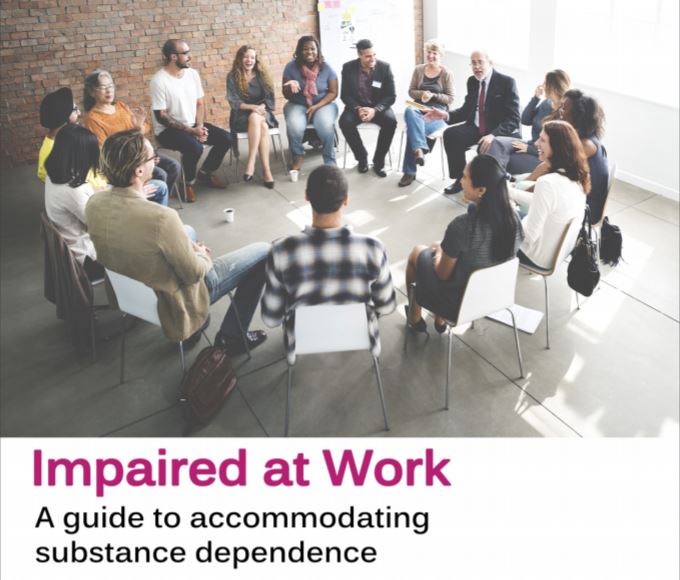Human rights law now considers substance dependency to be a disability, and grants sufferers the protections that go along with that designation
By PETER GOFFIN, Staff Reporter, The Star
Bill Moynagh hadn’t been turning up for work.
Bill Moynagh says he lost two jobs because of his alcoholism. He says his bosses never tried to discuss giving him help or support. The Canadian Human Rights Commission has just released guidelines to help employees accommodate staff with substance abuse issues.
It was the mid-1990s and Moynagh was a forklift driver at a plumbing supply chain. He was also submerged in alcoholism and struggling to fulfill basic duties like showing up for shifts or paying his bills.
His bosses tried to call him, but Moynagh’s phone had been disconnected.
When he eventually did go in, he was fired for missing shifts.
He soon lost another forklift job after he was caught drinking at work. “It was just, ‘You’re gone,’ ” said Moynagh, 59, who has been sober for over a decade.
“Neither (company) ever offered me any help or anything like that.”
In the 20 years since Moynagh lost his jobs, Canada’s human rights tribunals and courts of appeal have started treating drug and alcohol dependency as a disability.
Workers who are fired, or otherwise mistreated by employers, because of substance abuse issues are now often protected in the same way that a person fired for having a physical impairment would be.
“Most people probably wouldn’t be surprised to hear (an employer) say, ‘Hey, he was drunk so I fired him,’ ” said Jeff Meldrum, spokesperson for the Canadian Human Rights Commission.
“But the reality is, if you do that, you might get yourself into some legal trouble. Because it could well be that the person’s drinking is (now considered) a disability.”
In response to this evolving definition of “disability,” the commission released a new set of guidelines last week for employers trying to understand the needs of staff with drug or alcohol dependency.
 “Impaired at work: A guide to accommodating substance dependence” offers tips for managers on broaching the topic of substance abuse with struggling employees and providing accommodations that will, ideally, keep sufferers of addiction in the workforce as they seek treatment.
“Impaired at work: A guide to accommodating substance dependence” offers tips for managers on broaching the topic of substance abuse with struggling employees and providing accommodations that will, ideally, keep sufferers of addiction in the workforce as they seek treatment.
The commission, which has jurisdiction over federally regulated industries like air travel and telecommunications, is not the only agency updating its literature on substance abuse and workplace accommodations.
The Ontario Human Rights Commission, which sets rights regulations for the majority of workplaces in the province, issued a “Policy on preventing discrimination based on mental health disabilities and addiction” in 2014, and a new policy on workplace drug and alcohol testing in 2016.
Substance dependency is listed as a disability under the federal human rights law, though the Ontario Human Rights Code does not explicitly mention it.
But new precedents have been set over the past 10 years or so, said Meldrum, by judges and tribunal adjudicators who have interpreted disability rights to cover people with substance dependency issues.
Employers are not expected to keep substance-dependent staff on the job if their behaviour could be a safety risk.
